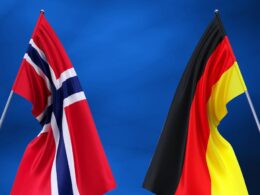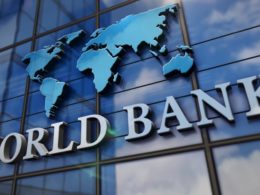Ukraine’s leading job portal, Work.ua, has expanded its roster of brands conducting business with Russia. The job portal severs ties with all companies that have not exited the Russian market.
The initial list includes prominent names such as Unilever, Leroy Merlin, Raiffeisen Bank, Metro, LC Waikiki, KRKA, Berlin-Chemie, Nestle, OTP Bank, Mondelez, PepsiCo, Philip Morris, Syngenta, Procter & Gamble, FM Logistic, Yves Rocher, Beko, Auchan, JTI (Japan Tobacco International), and Dr. Reddy’s Laboratories.
A second list, featuring an additional 200 companies, highlights those still contributing to the military capabilities of the aggressor country. Among them are recognizable brands like Coca-Cola HBC, Samsung, Xiaomi Corporation, L’Oréal, Claas Group, Caparol, Lacoste, Colin’s, New Yorker Group Services, Intimissimi, Calzedonia, Bacardi, Lactalis, Gorenje, Zepter, Dahua Technology, Tezenis, Haier, B. Braun, and Egger.
Work.ua is removing these brands and others from its client list, rejecting their vacancies and funds in a declaration that “underscores the immovability of dignity.” The portal pledges to persistently review and block companies that continue to “straddle both sides.”
The call goes out for employees of these companies to submit resignation letters and find employment in businesses genuinely supportive of Ukraine. With 100,000 vacancies available on Work.ua from actively hiring employers, finding a place in a humane company is assured, Work.ua adds.
On August 10, 2023, Work.ua suspended services to 20 companies from the initial sanctions list and announced its intention to review and ultimately remove terrorism sponsors from its clientele within a month.
Work.ua CEO: 1.5 years enough time for brands to exit Russia – now we cut ties
The second sanctions list, encompassing additional companies, has now been introduced.
The foundation for these sanctions is rooted in data from the site “International Sponsors of War” by National Agency for Corruption Prevention (NAZK) and the “Leave Russia” project from the Kyiv School of Economics. The formation of these lists was also guided by user contributions on Work.ua, recognizing companies engaging in double dealings.
The stance taken by responsible businesses to extricate themselves from dealings with an aggressor nation sets an example. Notably, businesses like McDonald’s, Henkel, EPAM, Airbnb, Apple, Booking, H&M, IKEA, Netflix, and others have shown that dissociation is possible.
The manifesto has ignited a societal resonance and found favor within both the Ukrainian public and business community.
Prominent creative, media, marketing, and PR agencies in Ukraine have also voiced their support for the manifesto against cooperation with companies that remain in the Russian market. Together with Work.ua, they have initiated the Reputation Institute. Logistics company Prime Group will cease services to PepsiCo, Metro, Nestle, and others still engaged with the aggressor nation starting September. Dutch brewery Heineken has concluded the process of exiting the Russian market and sold its assets for a symbolic 1 euro.
“The power of unity among businesses and citizens is now evident. We have the right to know the brands behind the products we purchase, and retailers can help us distinguish between companies that contribute to terror.
Join us in demonstrating the importance of conscious consumpsion. (…) The victory and the future of a free Ukraine lie in our collective choice, one that must be bold and resolute. Our active stance will determine how swiftly we rid our land of the adversary, expel them from all territories, spheres of life, and corners of consciousness,” the company stated.





